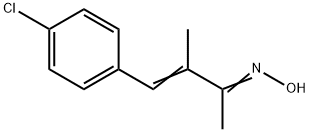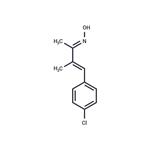AP-18 is a channel blocker which reversibly inhibits TRPA1 (IC50s = 3.1 and 4.5 μM, human and mouse, respectively). It has minimal effect on TRPV1-4 or TRPM8. AP-18 has been used to study TRPA1 signaling in mice and rats as well as in vitro.
AP-18 is a selective TRPA1 channel blocker. AP-18 blocks the transient receptor potential ankyrin 1 receptors and can reduce chronic pain associated with arthritis. AP-18 reduces cinnamaldehyde-induced nociception in vivo and blocks cold- and mustard oil-induced activation of mouse TRPA1 but not capsaicin-induced activation. AP-18 reverses CFA-induced mechanical hyperalgesia in mice
AP-18 is a channel blocker that inhibits TRPA1.
Reversible TRPA1 channel blocker (IC 50 values are 3.1 and 4.5 μ M at human and mouse TRPA1 respectively). Blocks cinnameldehyde-induced but not capsaicin-induced nociception and reverses mechanical hyperalgesia in vivo . Also blocks TRPA1 pore dilation (IC 50 = 10.3 μM for the inhibition of Yo-Pro uptake).
AP-18 is a selective TRPA1 channel blocker. Transient receptor potential A1 (TRPA1) plays a central role for chemical sensing in the pain pathway. AP-18 is a novel TRPA1 channel blocker. It reduces cinnamaldehyde-induced nociception in vivo and blocks cold- and mustard oil-induced activation of mouse TRPA1 but not capsaicin-induced activation demonstrating selectivity vs. TRPV11. AP-18 reverses CFA-induced mechanical hyperalgesia in mice.
ap-18 blocks the transient receptor potential ankyrin 1 receptors and can reduce chronic pain associated with arthritis. this product is also capable to induce cinnamaldehyde-induced nociception and to block cold- and mustard oil-induced activation of mouse trpa1 but not capsaicin-induced activation 2. in addition, ap18 treatment reversed cfa-induced mechanical hyperalgesia in mice 2. thus, trpa1 is essential for sensitization of nociception.

